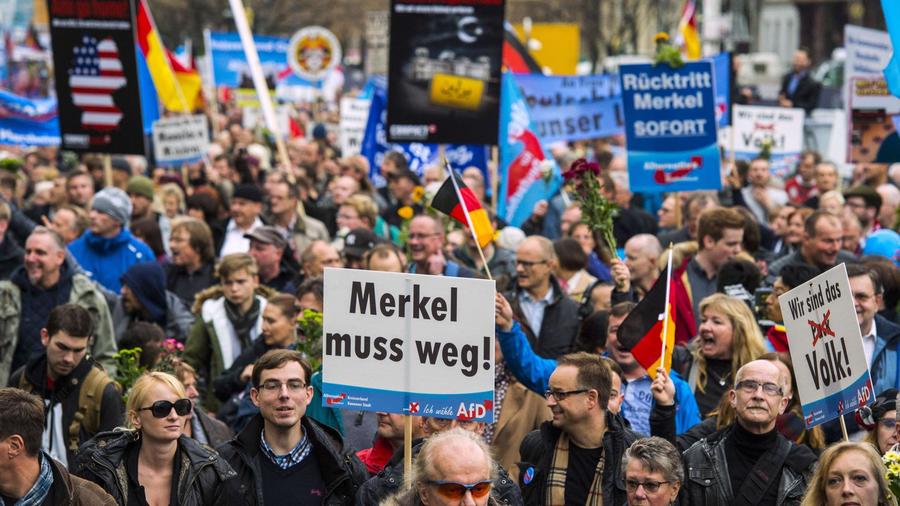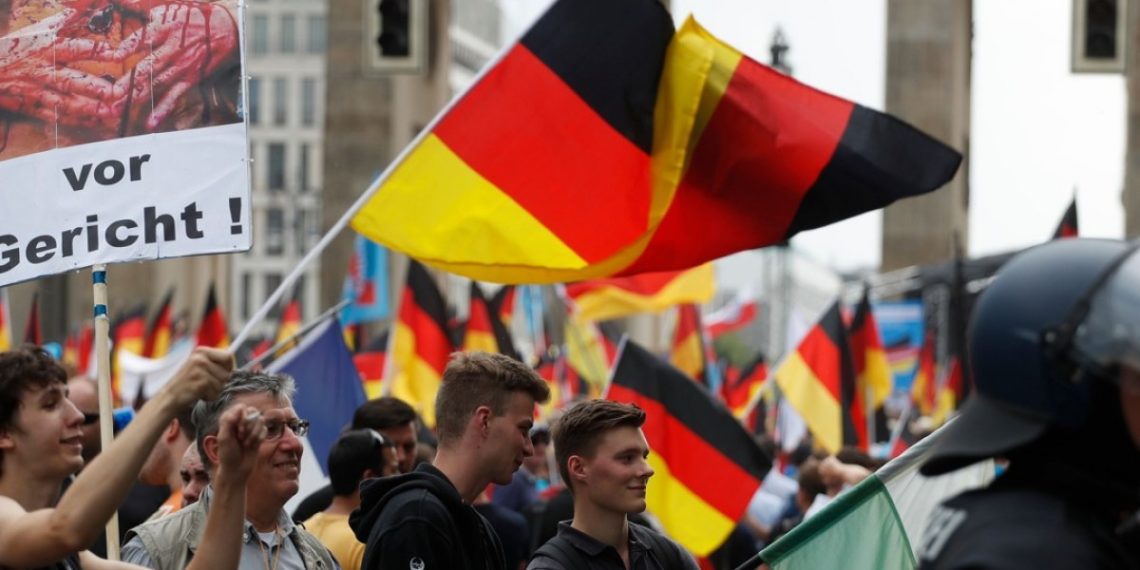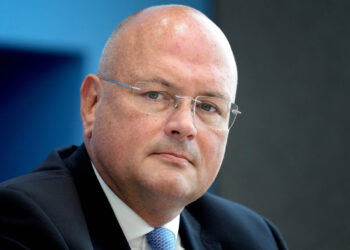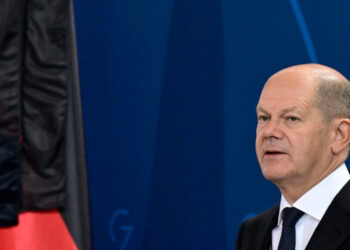Germany has long been a country of political stability, but that era may be over. With xenophobic crimes and increasing controversy over the rising far-right AfD party, the established players seem stunned and helpless. The political left must reconnect to traditional voter milieus if it wants to combat the AfD and its ideology.
The right-wing party – consisting of E.U.-opponents, xenophobes, and racists – is the major reason why Germany’s era of stability may come to an end. Specifically in the east, on the territory of former communist Germany, the AfD has long left obscurity and is more present than ever, doubling or even tripling its votes in recent state elections compared to five or six years ago.
Despite the specific issues in the east, where 30 years after reunification more than a third of Germans feel like second-class citizens, the whole country increasingly appears to be politically paralyzed and economically and culturally divided.
Germany: Divided Country
It is symbolic and worrying that 75 years after World War II, a far-right party has become a force in German elections, all the while some of its high-profile representatives lean on xenophobic rhetoric or even act apologetic towards the crimes of Nazi Germany. For decades, most Germans stayed away from anything that was even remotely close to xenophobia, even in times of increasing immigration pressure.
What’s more, as opposed to other European states where right-wing parties have gained support, Germany came out of the 2008 financial crisis relatively unscathed and remains economically strong. However, it seems that in a period of overall prosperity, history chases the country and shapes its political future.
https://www.youtube.com/watch?v=i9vRsWIN-kI
Based on average growth and income rates, Germany as a whole does well, but it’s still very much a divided country. The east suffered under socialist rule for 40 years and still has not fully recovered economically and emotionally. That’s where the AfD can gather support the easiest.
Additionally, Germany has a lower class that is increasingly separated from the middle and upper classes, with little to no chance of catching up. That’s where the AfD can also gather support pretty easily, both in the east and the west. Usually, these voters would find a home in left and center-left parties, but that is no longer the case.
AfD Voters
As election analysis examined following the 2017 general election, the average AfD voter is a middle-class man living in rural areas in the east, and a blue-collar worker with a slightly below-average income in the west.
These voters complain that they have either no influence on political decision-making because they are so separated from the elites in Berlin and elsewhere, or they complain about their status because socially, they can hardly join the wealthier in their apartments and suburban houses.
Many of these voters first went into inner emigration. They did not leave Germany but instead chose to remain and not participate with the country’s direction in any way. After this phase of inner emigration, they turned their heads towards the AfD. This explains why the party has gained so many votes from people who did not turn up at previous elections. The AfD activated a milieu that now leaves its mark on German politics and shows the rest of the country that they exist and can act.
A particular divide in Germany comes with increasing urbanization and migration into the metropoles, while those on the outside feel marginalized. Especially in the east, where people lived under an authoritarian regime for many years, the fear of and anger about marginalization is easily triggered.
Racism and Xenophobia
It is worrying how millions of voting Germans now align themselves with an at least partly racist party and either support that racism or look the other way to show their protest against the political elite.
This becomes even more worrisome in the light of three racially motivated shootings within nine months. Just last week, a shooting rampage in the town of Hanau left eleven dead, nine of them from an immigrant background. The killer was mentally ill but motivated by xenophobic rhetoric and hatred against minority communities. It was the act of an individual, but really, it wasn’t.
https://twitter.com/marceldirsus/status/1230424349338894336
While the events in Germany in the 1930s remain a historic singularity and comparisons are still ill-advised, the mix of racist worldviews and anti-elite populism is a reminder of how far-right parties come into power, where they ultimately can follow through with their ideology.
Many AfD voters were not necessarily clear-cut racists before they decided to back the party, but often angry and disenchanted about their situations. This made them much more vulnerable to strong-man and scapegoat rhetoric. In the past, left and center-left parties may have offered an alternative through policy proposals that included social reforms and wealth redistribution.
Future of German Politics
The AfD’s current goal is disrupting the political landscape and put an ax to the established parties’ fundament.
The center-left SPD, with a burnt-out leadership and barely any noticeable policies, is in a permanent crisis while still in government. Chancellor Angela Merkel’s CDU is shaken by the turmoil on the leadership level. Both parties are ultimately in doubt about their programmatic future, with a shared ambition to remain catch-all-parties and become distinct in their policy proposals again after years of compromises being in a coalition together.
Where does this leave German politics?
While many observers turn their heads towards the conservatives in the CDU and see a link between them and the rise of the AfD, it seems questionable that the majority of AfD voters would consider Germany’s conservatives to be an alternative.

In the regions and states where the CDU closes the gap to the AfD and flirts with a more national-conservative profile, it has usually suffered in elections because most CDU voters consider their party to be representing the interests of the state and to function as a stabilizing element even in times of political turmoil. To draw a picture, the CDU is making cool-headed decisions while appearing bland and refraining from any over-the-top rhetoric. A right-wing attitude does not fit that picture.
Some AfD leaders, most notably parliament group leader Alexander Gauland, have a history with the CDU or are, from an ideological standpoint, conservatives that slowly morphed into national-conservatives and eventually into right-wingers. That said, the AfD voter base should be much more of a concern to the left parties, which might be able to convince AfD supporters to give them a first or, in some cases, second chance.
Alternative to AfD
The socialist party Die LINKE was for some twenty years the major protest party in Germany’s east but lost its allure. Meanwhile, the SPD was once a workers’ party in the west but now can only count on the backing of teachers, civil servants, and other academics, and even that support has diminished significantly.
Despite the glaring ideological differences between the AfD and the political left, it is up to the two left parties to regain a footing in traditional voter milieus and create an alternative to the AfD, based on economic and social policies presented as short and long-term solutions for those in despair.
What may not work is an approach that just condemns the AfD for its racism and xenophobia. As sad as it is, millions of voters did draw their cross next to the AfD on the ballot sheet long after it became clear that the party tolerates and elevates xenophobes within its ranks. Many voters, however, are truly connected to the wish for economic equality and social participation. It is time for the left to step in and recapture the trust of those voters.
Disclaimer: The views and opinions expressed here are those of the author and do not necessarily reflect the editorial position of The Globe Post.























